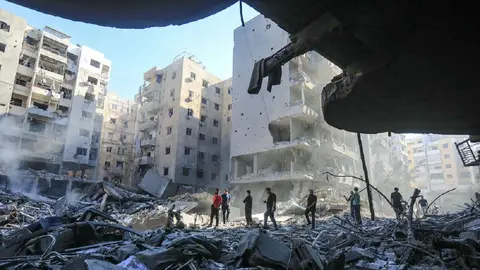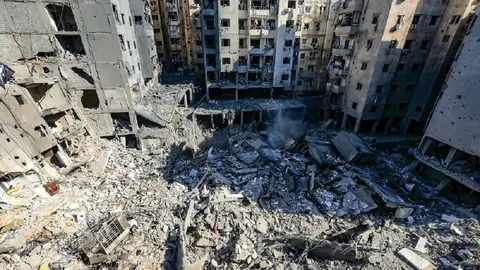Israel launches ‘limited’ ground operation against Hezbollah in southern Lebanon
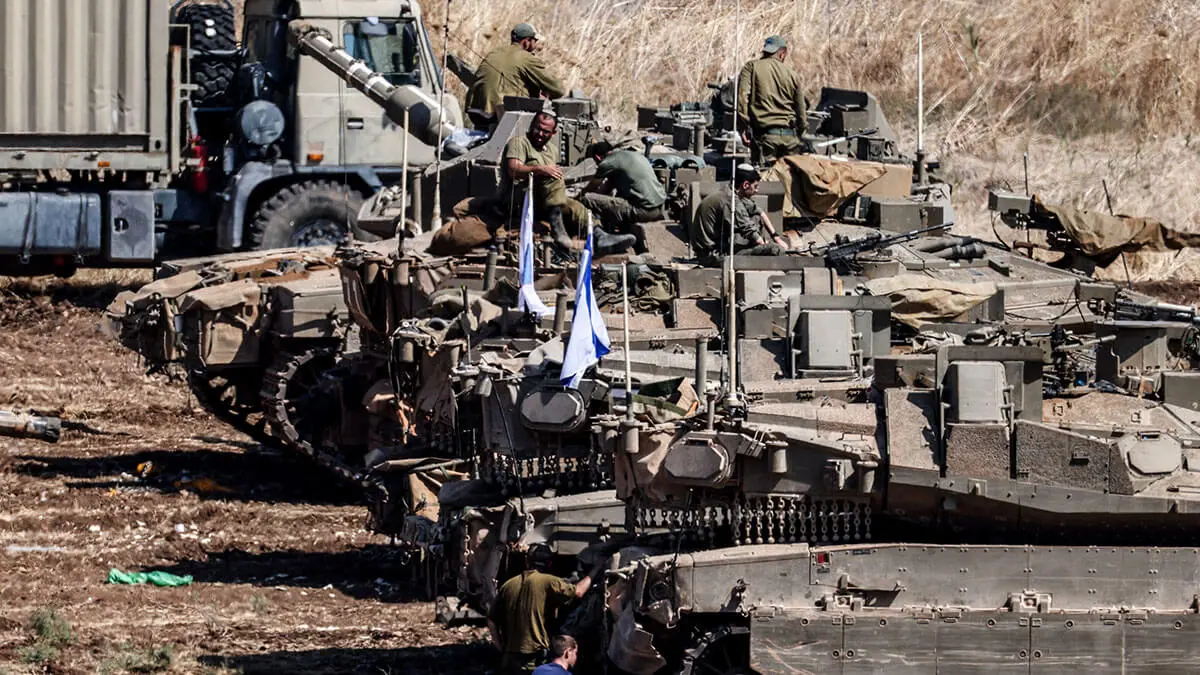
Amid the ongoing military ground operation against Hamas in the Gaza Strip, Israel has launched a ‘limited and localised’ raid against Hezbollah targets in southern Lebanon after weeks of heavy fighting with the Lebanese Shia militia.
As the Israeli military said in a statement, the raids are based on ‘accurate information about Hezbollah targets and terrorist infrastructure in southern Lebanon’ that are ‘located in villages close to the border and pose an immediate threat to Israeli communities in northern Israel’. ‘The Israeli Air Force and IDF Artillery are supporting ground forces with precision strikes on military targets in the area,’ it added.
Israeli troops have crossed the northern border - for the first time since the summer of 2006 - after nearly a year of clashes with Hezbollah, a militia backed by the Islamic Republic of Iran that on October 8 began launching sustained attacks on northern Israel in support of Hamas in Gaza.
In recent weeks the fighting has intensified, coinciding with the Israeli government's decision to add to the war aims the safe return of all inhabitants of the north who have had to be evacuated due to Hezbollah attacks.
After operating in Gaza, where the soldiers of the 98th division gained skills and operational experience, they moved north and are now conducting limited, localized, targeted operations that began last night.
— Israel Defense Forces (@IDF) October 1, 2024
We will continue fighting to achieve all goals of the war including… pic.twitter.com/eoSDaYbRvo
Since then, the Lebanese armed group has suffered major defeats, including the death of its leader, Hassan Nasrallah, who was killed during an Israeli air strike on his bunker in Beirut. In addition to Nasrallah, Israel has managed to get rid of virtually the entire Hizbollah leadership within weeks, leaving the militia without a concrete leadership.
Nevertheless, Hezbollah still has the capacity to launch attacks against Israeli territory, even reaching the centre of the country and major cities such as Haifa and Tel Aviv. In fact, this morning the Lebanese militia fired between three and five rockets into central Israel, injuring at least three people.
This limited incursion by the Israeli army has the backing of the US, which sees the need to ‘dismantle the attack infrastructure along the border to ensure that Hezbollah cannot carry out October 7-style attacks against communities in northern Israel’, something the Lebanese militia had planned.
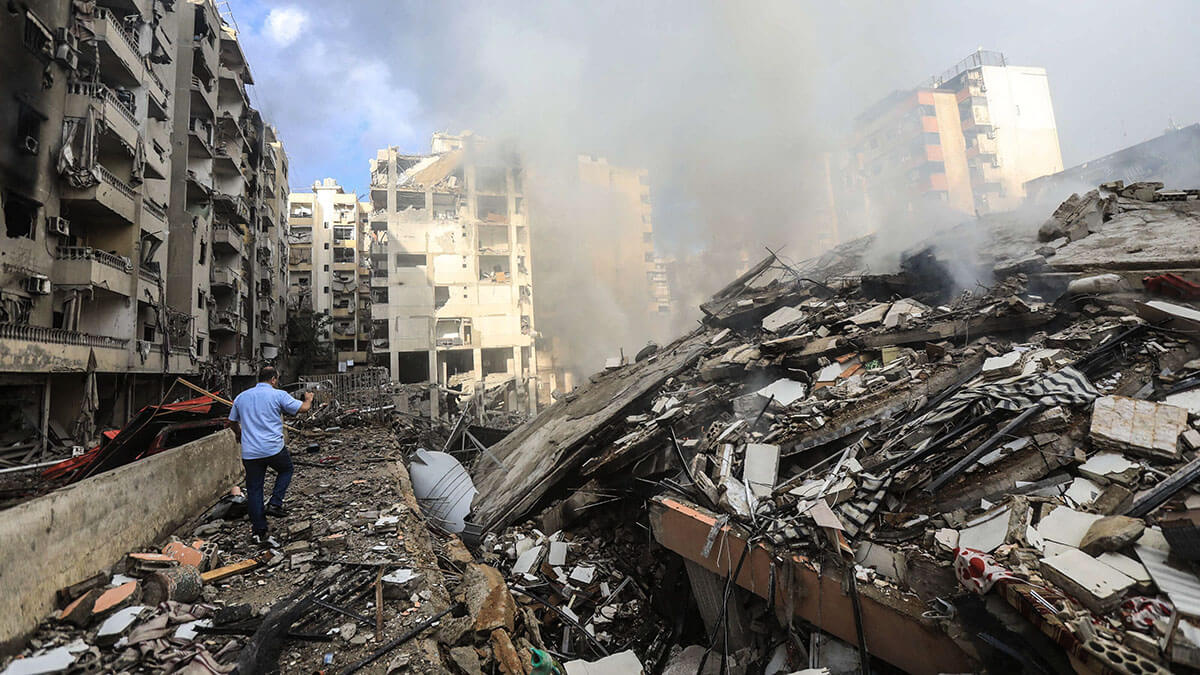
Defence Secretary Lloyd Austin also conveyed to his Israeli counterpart, Yoav Gallant, the need for ‘a diplomatic resolution to ensure that civilians can return safely to their homes on both sides of the border’. The US, along with allied countries such as France, has urged a ceasefire in order to de-escalate tensions and allow displaced people to return home.
For Israel, it is paramount that this ceasefire include the implementation of UN Resolution 1701 from the end of the Second Lebanon War, which prohibits Hezbollah's presence south of the Litani River, some 30 kilometres from the border with Israel.
In this regard, Lebanon's interim prime minister, Najib Mikati, has stressed that his government is prepared to deploy the army in southern Lebanon to fully implement this resolution - passed in 2006 after a month-long war between Israel and Hezbollah - in an attempt to establish a security zone that avoids a direct confrontation with its southern neighbour.
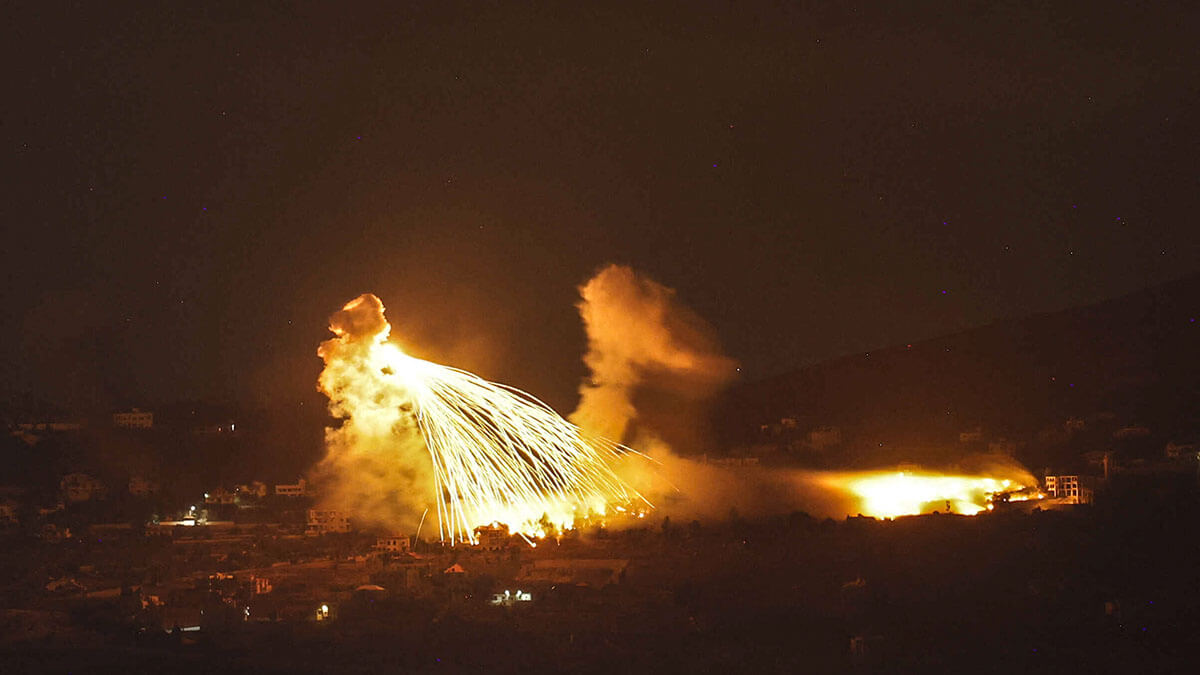
In addition, following the start of the Israeli ground operation, the Lebanese army announced the relocation of its personnel from some observation towers in the border areas with Israel in cooperation and coordination with the UN interim mission in Lebanon (UNIFIL).
In addition to operations in southern Lebanon, the IDF has carried out targeted strikes against weapons manufacturing facilities and infrastructure belonging to Hezbollah in Beirut's Dahieh. Israel accuses the Lebanese militia of ‘intentionally embedding its weapons and armaments manufacturing facilities under civilian population centres in Beirut, using the civilian population as a human shield for its terrorist activities’, just as Hamas does in Gaza.
Overnight airstrikes in Beirut's southern suburb, a Hezbollah stronghold known as Dahiyeh, targeted several weapon production sites and other facilities belonging to the terror group, the IDF says.
— Emanuel (Mannie) Fabian (@manniefabian) October 1, 2024
The military had warned civilians to flee three sites in the area before carrying… pic.twitter.com/Cj389EwwdL
Also, in another strike in the Lebanese capital, the IDF eliminated Hamas leader in the country, Sharif Abu Al Amin, ‘responsible for coordinating between Hezbollah and Hamas in Lebanon, recruiting operatives and acquiring weapons’, according to Israel. Another senior member of the Palestinian terrorist organisation, Fatah Sharif Abu al Amin, was killed in an attack in Tyre.
Al Amin was also a member of the United Nations Relief and Works Agency for Palestine Refugees in the Near East (UNRWA) and president of its teachers' union, again highlighting the close relationship between UNRWA - a UN agency - and Hamas.
Hamas terrorist organization announces the death of its commander Fateh Sharif Abu Al-Amin, leader of the Hamas Movement in Lebanon, eliminated by an #IAF airstrike in El-Buss, southern #Lebanon 🇱🇧
— Aleph א (@no_itsmyturn) September 30, 2024
Fateh Al-Sharif also served as the head of the @UNRWA teachers union in Lebanon. pic.twitter.com/RUcQL5i1mP
Israel accused many UNRWA members of involvement in the 7 October massacres in southern Israel. The UN, for its part, admitted that at least nine of its employees were involved in the attacks.

